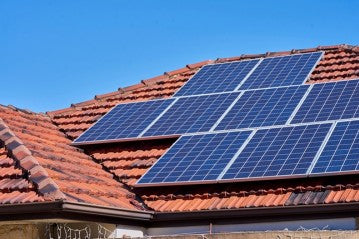
Solar panel systems have become an increasingly popular solution to power homes, businesses, and communities. However, one of the most promising applications of solar energy is in rural villages, where access to electricity can be limited. In this guide, we'll explore the advantages of solar panel systems in rural villages, provide examples of successful implementations, and discuss the challenges that need to be addressed to expand the use of solar energy in these areas.
Advantages of Solar Panel Systems in Rural Villages
1. Improved Access to Electricity
In many rural villages, access to electricity is limited or non-existent. Solar panel systems can provide a reliable source of electricity to these communities. By harnessing the power of the sun, solar panels can generate electricity even in remote areas that are not connected to the grid. This can enable rural households to power appliances such as lights, fans, and refrigerators, improving their quality of life.
2. Reduction in Energy Costs
Solar energy is often cheaper than traditional forms of energy in the long run. While the initial cost of setting up a solar panel system can be high, it can lead to significant savings on energy costs over time. Rural households and businesses that rely on traditional forms of energy such as kerosene lamps and diesel generators may spend a significant portion of their income on energy. By switching to solar energy, they can reduce their energy costs and allocate their resources towards other needs.
3. Boost to Economic Opportunities
Access to electricity can enable rural communities to start small businesses and increase their income. For example, solar-powered irrigation systems can help farmers to increase their crop yields and sell their produce for a higher price. Solar-powered micro-grids can enable rural businesses to operate after sunset, increasing their productivity. Additionally, access to electricity can enable rural households to start small businesses such as mobile phone charging stations, improving their economic opportunities.
Examples of Solar Panel Systems Benefiting Rural Villages
1. Solar-Powered Irrigation Systems in India
In many parts of India, farmers rely on diesel-powered pumps to irrigate their crops, which can be expensive and polluting. Solar-powered pumps have emerged as a more cost-effective and environmentally-friendly solution.
Through the government's "KUSUM" scheme, farmers can receive subsidies to install solar-powered irrigation systems. Solar pumps can be used to draw water from wells, boreholes, and rivers, and can operate even in areas with unreliable grid electricity. By reducing the cost and environmental impact of irrigation, solar-powered pumps have helped to increase crop yields and incomes for rural farmers.

2. Solar-Powered Micro-grids in Africa
In many rural areas of Africa, access to electricity is limited or non-existent. Solar-powered micro-grids have emerged as a viable solution to bring electricity to these areas. These micro-grids are small-scale, decentralized energy systems that can provide electricity to households, businesses, and community facilities. They often consist of solar panels, batteries, and inverters, along with distribution lines and meters.
In Tanzania, for example, the company Off Grid Electric has installed over 100,000 solar home systems and micro-grids, bringing electricity to over 1 million people. By providing access to electricity, solar-powered micro-grids can improve health, education, and economic opportunities in rural communities.
3. Solar-Powered Water Pumps in South America
Access to clean water is a major challenge in many rural areas of South America. Solar-powered water pumps have emerged as a solution to this challenge. These pumps can be used to draw water from wells, boreholes, and rivers, and can be powered by solar panels.
By providing access to clean water, solar-powered water pumps can reduce the risk of waterborne diseases and improve the health of rural communities. In Bolivia, for example, the organization Water for People has installed over 800 solar-powered water pumps, providing access to clean water for over 40,000 people.
Challenges Facing the Implementation of Solar Panel Systems in Rural Villages
1. High Initial Cost
The cost of setting up a solar panel system can be high, making it difficult for rural communities to afford.
2. Lack of Technical Expertise
Rural communities may lack the technical expertise needed to install and maintain solar panel systems.
3. Limited Access to Financing
Rural communities may have limited access to financing options to fund the installation and maintenance of solar panel systems.
Conclusion
Solar panel systems can bring many advantages to rural villages, including improved access to electricity, reduced energy costs, and economic opportunities. However, the implementation of solar panel systems in these areas faces challenges such as high initial costs, lack of technical expertise, and limited access to financing.
Ecgsolax has been committed to providing cost-effective high-quality solar products, including solar charge controllers, inverters, batteries, etc. If you want to use solar systems in rural areas, I believe our products will be your best choice.

0 Kommentare